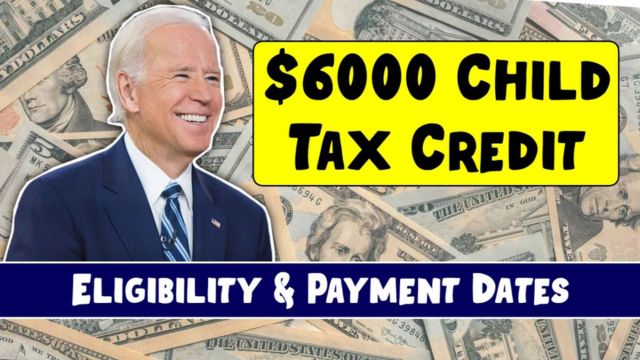MJP –
One of the most talked-about issues in the next US elections is the child tax credit. Democratic presidential contender Kamala Harris recently voiced her support for a $6,000 stipend for new parents during the most recent debate, highlighting the importance of providing more assistance to parents in their child’s first year.
Harris emphasized that the goal of this program is to help families financially during a pivotal period in their child’s development.
During the debate, Harris advocated for a child tax credit expansion to $6,000 for parents with children younger than one-year-old, highlighting the need to provide further assistance to young families.
Under this plan, the existing program—which provides $2,000 for each dependent child under the age of 17—would be extended. Parental financial assistance would be greatly enhanced under Harris’s plan, providing much-needed respite to parents during a crucial period of their child’s development.
The plan put forth by Kamala Harris: a larger child tax credit
Although this isn’t a brand new proposal, Democrats have been discussing ways to increase the child tax credit ever since the American Recovery and Reinvestment Act of 2021 was put into effect. The child tax credit was temporarily raised to $3,600 for children under the age of six and $3,000 for children aged six to seventeen.

Despite its transient nature, the expansion significantly reduced child poverty, an outcome that Harris hopes to achieve with her current proposal.
Detailed procedures for the proposed new child tax credit
At present, parents can claim up to $2,000 in child tax credits for each dependent kid, with $1,600 of that amount being refunded. That implies parents can get that money back even if they don’t owe any taxes at all. You can only use the remaining $400 to lower your tax liability.
SEE MORE –
US Child Tax Credit: Upcoming Payments and Schedule for the Rest of 2024
Harris’s plan is an attempt to go above and above, providing $6,000 for the first year of the baby’s life. This sum is meant to help families with some of the most important costs they encounter in the first few months, like food, diapers, and medical treatment.
To ensure that all eligible families, regardless of their financial circumstances, may receive the entire credit, Harris’ proposal would do away with income and employment criteria, just as the 2021 extension.
To what extent does this suggestion matter?
Many parents find that the first year of their child’s life is the most financially draining. Many families experience financial strain as a result of medical expenses, the cost of baby necessities, and, in many instances, a loss of income when one parent takes time off to care for the newborn.
To help alleviate some of this financial burden, Harris has proposed a $6,000 increase to the child tax credit. This will allow families to devote more time and energy to their children’s care and development without having to worry about how they would pay for it.
Furthermore, as seen with the temporary increase in 2021, expanding the child tax credit has the ability to greatly decrease child poverty rates. Child poverty rates were lowered by approximately 30% in 2021 as a result of the expansion, according to the Center on Poverty and Social Policy at Columbia University. With Harris’s plan in place, we can repeat this success and ensure that millions of kids have better financial situations as they grow older.
Evaluation in light of Republican recommendations
Democrats have made boosting the child tax credit a top priority, but some Republicans have expressed interest in doing the same. For example, while running for president, Donald Trump implied that he might think about a “significant expansion” of the child tax credit, but he never outlined exactly what this would mean.
Senator J.D. Vance, who is running as the Republican candidate with Trump, recently stated in an interview that he supports a child tax credit of up to $5,000 per child. Vance and Trump agree, however, that increasing the child tax credit would need congressional approval and careful consideration of the proposal’s economic viability.
What kind of money would go into the enlarged child tax credit?
How exactly Harris intends to pay for his plan is one of the most pressing concerns. To fund her economic agenda, which includes measures to assist families like as the enlarged child tax credit, Harris has suggested increasing taxes on big businesses and the wealthy.
There is still a lack of clarity on the plan’s entire financing due to the lack of details regarding the nature of these tax increases.
Despite the fact that increasing the child tax credit is a good idea, the CRSB has pointed out that the tax hikes that would be required to pay for it must be transparent and viable for the future. Harris persists in arguing that her proposal would help working families and reduce child poverty despite these criticisms.




